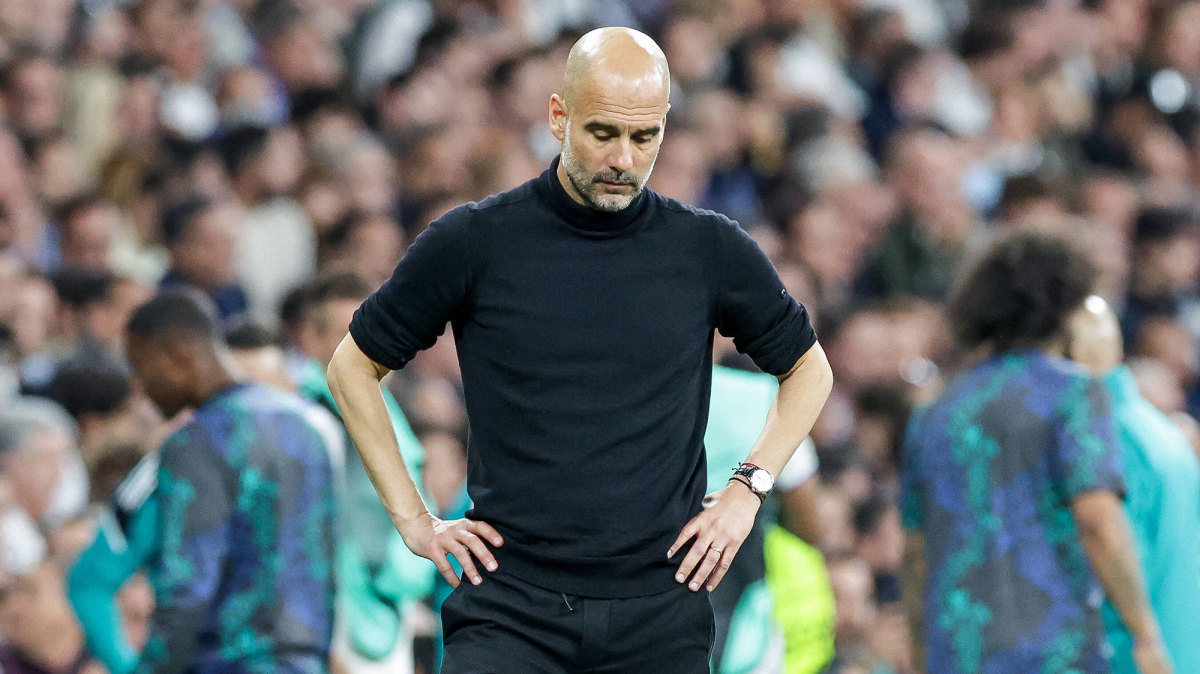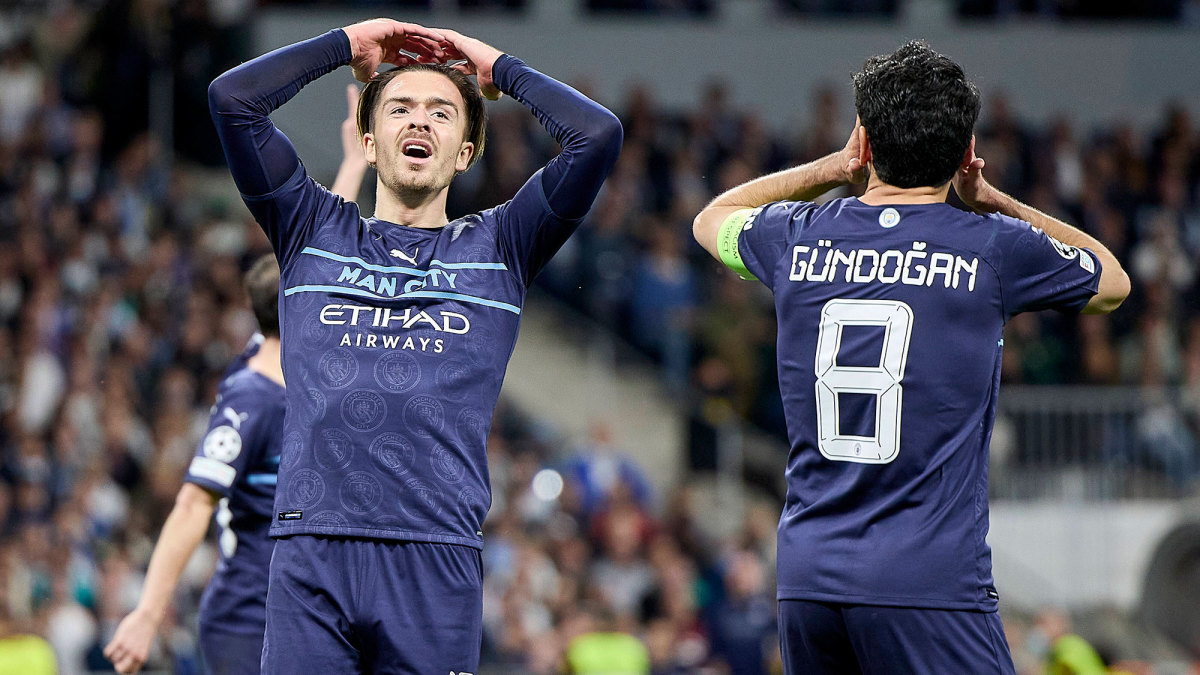Man City Goes in Search of Calm After the Storm

Despite yet another shock to the system on the biggest stage, Manchester City manager Pep Guardiola is projecting a sense of calm.
“It is tough for us, I cannot deny that,” he said after Wednesday’s Champions League semifinal collapse and exit at the hands of Real Madrid. “We were so close to the Champions League final. Now we need to process that and come back, with our people at home and in the last four games we have. We need time now. One or two days, but we will rise.”
And perhaps Manchester City will. In the race for the Premier League title, it leads Liverpool by a point with four games of the season remaining. Liverpool’s run-in (home vs. Tottenham, at Aston Villa, at Southampton, home vs. Wolves) looks marginally harder than City’s (home vs. Newcastle, at Wolves, at West Ham, home vs. Aston Villa), although that might not be the case for the final three should Liverpool beat Tottenham on Saturday. And there is an intriguing narrative possibility in the prospect of Steven Gerrard, who never did win a league title with Liverpool, winning one for his former club by leading his Villa side to a result against City on the final day of the season.
But perhaps City will not rise, as Guardiola expects. How many crushing defeats can one team and one manager suffer in a competition before it begins to impinge on its form in other competitions? City should have been in the final. But for Ferland Mendy’s goal-line clearance and Thibaut Courtois’s save on Jack Grealish, it would have been. Even then, all it had to do was not to concede two goals in injury time against a team that hadn’t managed a shot on target in the first 90 minutes of the game to get there. But it conceded twice. And then, having given away a cheap penalty early in extra time, looked beaten. It wasn’t so much that it generated only one genuine chance in the added half hour, it was the sense of desolation.

Things can change quickly in football. Newcastle, even after its recent investment, is not Real Madrid. And City, fundamentally, tends to lose only against elite-level teams in big games. But that tendency itself must be a concern. Why does it keep on happening? Does there come a point at which Guardiola begins to doubt himself and his methods? Or do the players begin to doubt him?
In the aftermath of Wednesday, he now faces a curious dilemma, perhaps not for the league games to come but in future Champions League campaigns. If he makes changes, if he tries to take action to prevent opponents from counterattacking against City, he risks the sort of confusion caused by tweaks against Liverpool in 2018, Lyon in 2020 and Chelsea last season. But if he does nothing, why would he expect anything to change?
There is a sense that Guardiola has been repeatedly unfortunate in the Champions League, that only very occasionally have his sides been outplayed by the opponent that has eliminated them. But there is perhaps also a sense that the way he plays, his demand for order, makes his side oddly ill-equipped to deal with chaos when it occurs.
That is seen in microcosm in his reluctance to deploy an orthodox striker—although the potential arrival of Erling Haaland in the summer could change that. A more natural goalscorer might affect City’s ability to retain possession and create chances, but it might also mean that it doesn’t need to create so many chances to win games. Had City spent £100 million on Harry Kane rather than Grealish last summer, might things have been different?

But all that is for the future. What matters now for City is winning these final four games and securing a fourth league title in five seasons—and, at the same time, avoiding a first season without a trophy since 2016–17, in Guardiola’s debut season in England. Whether Wednesday’s setback will impinge on that is very hard to say.
City, after all, has had the better expected goals in every league game it has played this season. That suggests it is the best team in the league. It should win these final four games. But then, it should have beaten Madrid. Doubt and anxiety can do strange things to a side. The defeats to Chelsea and Lyon were the last of their respective seasons, but the defeat to Spurs in 2019 was followed by six straight wins that yielded the double. Guardiola’s City has come back from disappointment before.
But momentum is a fragile thing. And it may be that in injury time on Wednesday that City lost it.
More Soccer Coverage From Jonathan Wilson:
